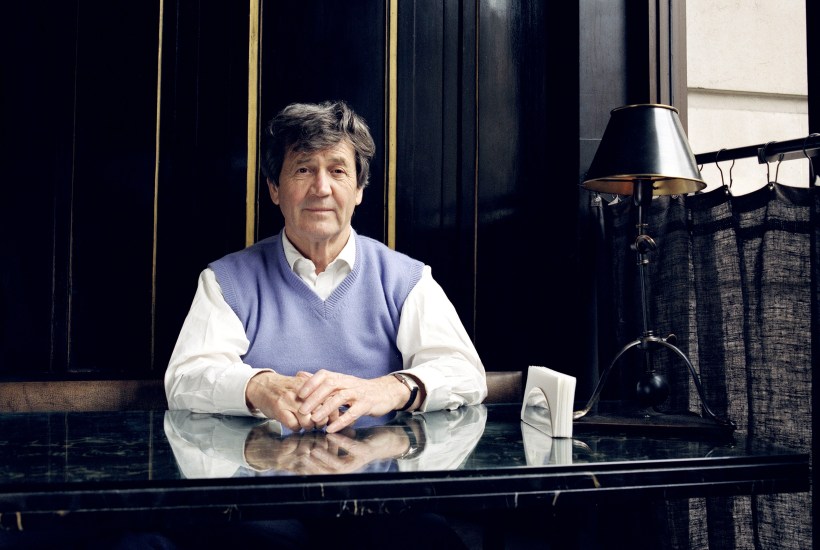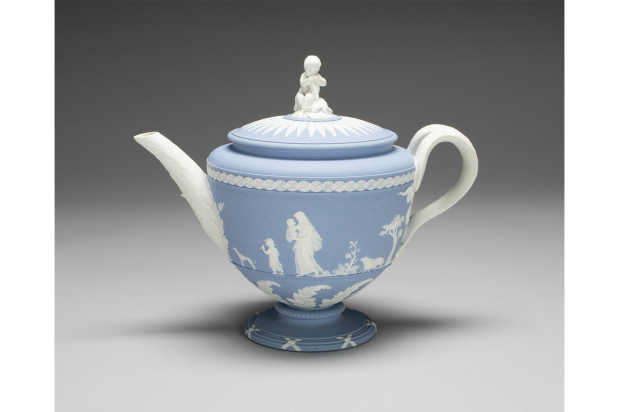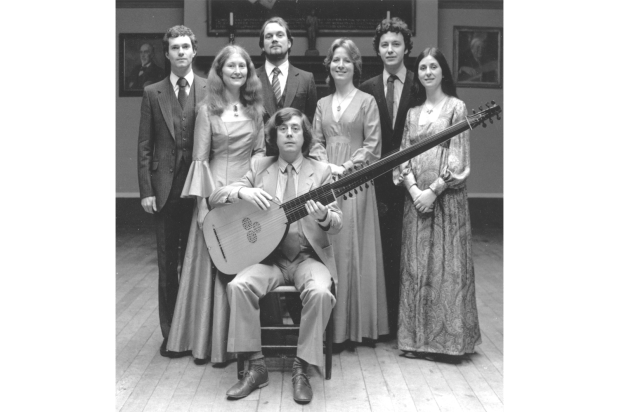In Our Time is the best thing on Radio 4, possibly the best thing on the radio full stop. It is broadcast regularly from a parallel universe where everyone is interesting, everything is worth knowing and anyone can know it if they want to. It gets the best out of its medium by being somewhat contemptuous of it. It understands that the overproduced trimmings of modern radio are entirely extraneous. There will be no sound effects, no music and no catchphrases. All that we need by way of introduction is the word ‘hello’.
After that, there’s no telling what will follow. ‘Hello. In 541 AD, in the realm of Justinian, there was a plague in which the whole human race came near to being destroyed.’ ‘Hello. In 1638 a gathering of Presbyterians signed a solemn covenant in Edinburgh.’ ‘Hello. The experience of a complete solar eclipse is one of life’s most extraordinary, intense and fleeting moments.’
Of the academics in the studio with Melvyn Bragg, one will always be extremely nervous and talk too quickly and one will conduct themselves with the laconic self-confidence of someone certain they’re going to be invited back. They will all be experts in their field, and will likely have written some of the works on the thoughtfully compiled reading list that accompanies each episode.
It is a jewel, one that takes seriously the BBC’s founding mission ‘to inform, educate and entertain’, while simultaneously giving lie to the idea that this is at all difficult. Making intelligent radio is as simple as letting people say intelligent things. Along with Bragg’s not-quite-gruff, economical style, the key ingredient is the extent to which he and his producers trust their audience. In turn, the show’s enormous audience have repaid this trust by making it one of BBC Radio 4’s most well-loved and long-running features.
People are permitted to talk at length because what they are saying needs to be expressed at length. The online archive, where every single episode is freely available for download, is a treasure house of things you didn’t know you wanted to know about. The Kuiper belt? Macbeth? The evolution of horses? Hello, hello, hello.
Crucially, it ignores the current broadcasting playbook that is used to make some facet of cultural or historical life palatable to a modern audience. This demands that you take your thing — Dante’s Inferno or the Salem witch trials or what-have-you — and then you explain that this thing is interesting for reasons including but not limited to the following: it is related to the presenter’s relationship with their parents; it is related to the presenter’s mental health; it is related to the listener’s mental health; it is non-specifically but entirely ‘radical’; it is non-specifically but entirely feminist; it explains whatever crisis American democracy is facing that week; it explains who will win the next election; it has provided the presenter with an excuse to undertake a figurative ‘journey’ that relates to their aforementioned mental health or parents; it has provided the presenter with an excuse to undertake a literal journey, ideally to Italy or Spain. Perhaps it is simply that while the thing was thought to be ‘of its time’, it has since been discovered to march in cheerful lockstep with our own.
In every instance two assumptions are being made. The first is that culture is a straw through which people slurp up the lives and ideas they already have. The second is that people are incurious and stupid. Both of these assumptions are wrong. In Our Time’s refusal to indulge either of them makes it not only the most interesting thing on the radio, but also shows a respect for its audience that, in the circumstances, feels gently utopian. If you already listen, you likely won’t need any recommendations from me, though I would be remiss if I didn’t mention the episodes on photosynthesis, the Rosetta Stone and the Cultural Revolution. If you never have, the way to get into In Our Time is this: believe that the world is a fascinating place full of things you want to hear about. Browse the archives knowing only that you know nothing; trust that it’s all good, start anywhere at all and then go on however you like.
Got something to add? Join the discussion and comment below.
Get 10 issues for just $10
Subscribe to The Spectator Australia today for the next 10 magazine issues, plus full online access, for just $10.
You might disagree with half of it, but you’ll enjoy reading all of it. Try your first month for free, then just $2 a week for the remainder of your first year.














Comments
Don't miss out
Join the conversation with other Spectator Australia readers. Subscribe to leave a comment.
SUBSCRIBEAlready a subscriber? Log in